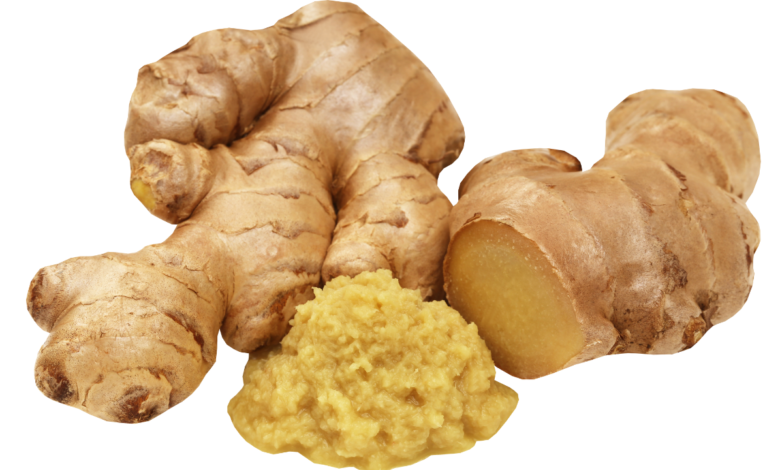Ginger: Can help stimulate digestion and reduce inflammation.

Brief information about it:
Ginger, scientifically known as Zingiber officinale, is a popular spice with numerous medicinal properties.
Uses:
· Digestive Health: Relieves nausea, indigestion, and bloating.
· Pain Relief: Reduces pain and inflammation, particularly in conditions like arthritis.
· Antioxidant Properties: Protects cells from damage caused by free radicals.
· Immune Booster: Strengthens the immune system.
Mechanism of action:
· Anti-inflammatory Properties: Reduces inflammation in the body.
· Antioxidant Properties: Protects cells from damage caused by free radicals.
· Digestive Stimulant: Stimulates digestive enzymes and improves digestion.
· Pain Relief: Inhibits the production of pain-causing substances.
Elimination half life:
The elimination half-life of ginger compounds varies and hasn’t been definitively studied.
Route of Administration:
Oral: Ginger can be consumed in various forms, including fresh ginger root, dried ginger powder, ginger tea, or ginger supplements.
Side effects:
Generally well-tolerated, but excessive consumption may lead to:
- Upset stomach
- Heartburn
- Diarrhea
Dose:
The appropriate dosage of ginger can vary depending on the specific condition and individual needs. It’s best to consult with a healthcare provider to determine the right dosage for you.
Precautions:
· Pregnancy and Breastfeeding: Pregnant or breastfeeding women should consult with a healthcare provider before using ginger.
· Blood Thinners: Ginger may interact with blood-thinning medications.
· Surgery: Ginger may affect blood clotting, so it’s best to avoid it before surgery.
· Allergic Reactions: Some people may be allergic to ginger.

